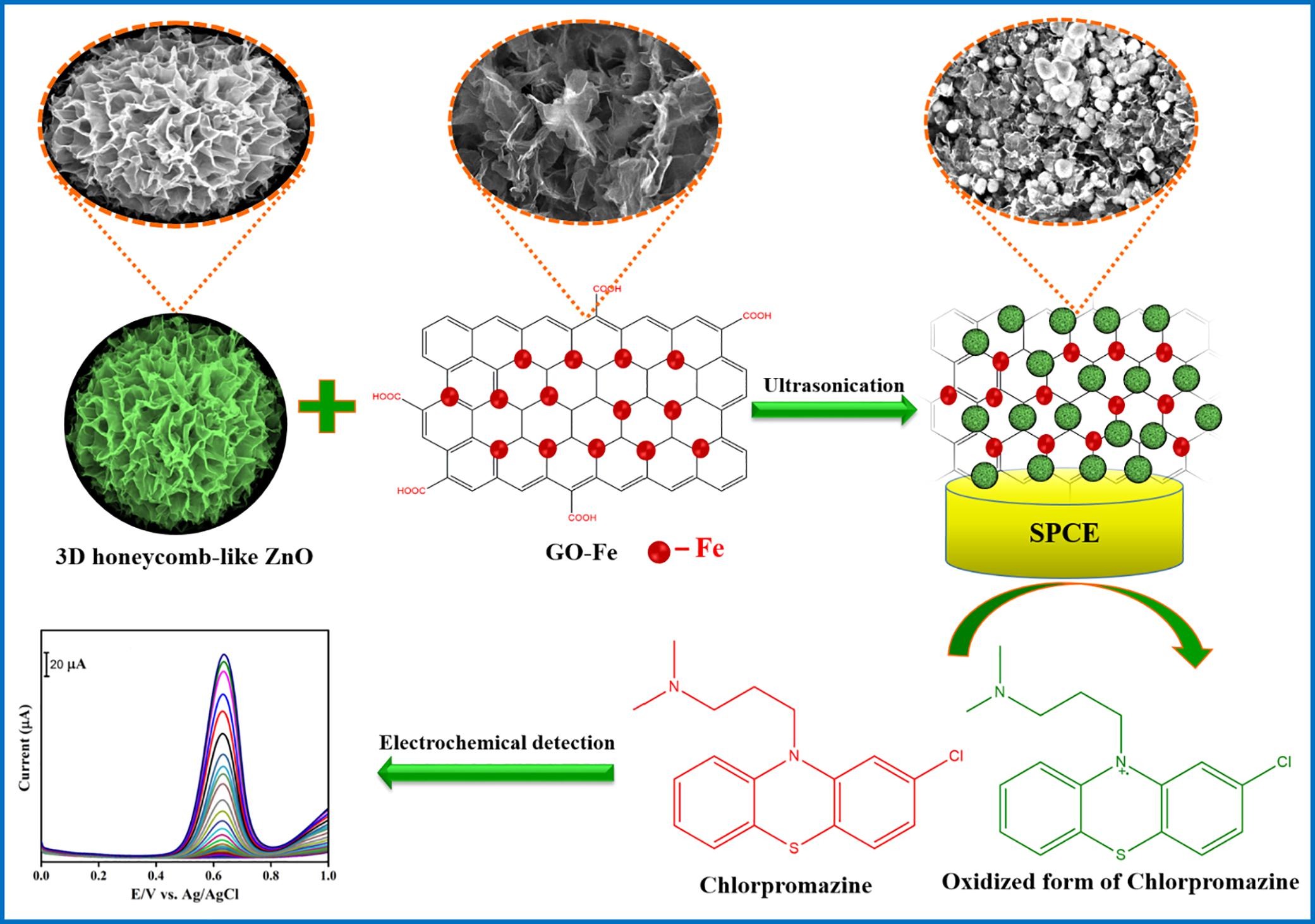Featured Scientist

Author published in"Ultrasonics Sonochemistry"affiliate to
College of Science and Engineering
Department of Chemistry,3
Fu Jen Catholic University, New Taipei City, Taiwan
Article publish in
"Ultrasonics Sonochemistry" Volume 59, December 2019, 104696
Sonochemical synthesis of iron-graphene oxide/honeycomb-like ZnO ternary nanohybrids for sensitive electrochemical detection of antipsychotic drug chlorpromazine
We report a novel electrochemical sensor for the sensitive and selective determination of the antipsychotic drug chlorpromazine (CPZ) based on the iron (Fe) nanoparticles-loaded graphene oxide (GO-Fe)/three dimensional (3D) honeycomb-like zinc oxide (ZnO) nanohybrid modified screen printed carbon electrode (SPCE). The 3D hierarchical honeycomb-like ZnO was synthesized using a novel aqueous hydrothermal method and the GO-Fe/ZnO nanohybrid was prepared based on an inexpensive and fast sonochemical method using a high-intensity ultrasonic bath (Delta DC200H, 200 W, 40 KHz). Characterizations including scanning electron microscopy, elemental mapping, transmission electron microscopy, X-ray diffraction, X-ray photoelectron spectroscopy, and Raman spectroscopy were carried out as part of this work. The electrocatalytic oxidation behavior of CPZ at various electrodes was investigated using the cyclic voltammetry technique, through which the GO-Fe/ZnO modified SPCE was identified as the best performing electrode. The quantitative determination of CPZ was then performed using the differential pulse voltammetry technique. The as-prepared GO-Fe/ZnO/SPCE sensor exhibited a quick and sensitive response towards the oxidation of CPZ with linear concentration ranges from 0.02 to 172.74 μM and 222.48 to 1047.74 μM. The modified SPCE sensor displayed a low detection limit (LOD) of 0.02 µM and a high sensitivity of 7.56 µA µM−1 cm−2. The proposed sensor also showed remarkable operational and storage stability, reproducibility, and repeatability. Furthermore, the practicability of the GO-Fe/ZnO/SPCE sensor has been verified with real sample analysis using commercial antipsychotic CPZ tablets and human urine samples, and adequate recovery has been achieved.[Full article]

Keywords 1. Introduction 2. Experimental section 3. Results and discussion 4. Conclusions
38 views